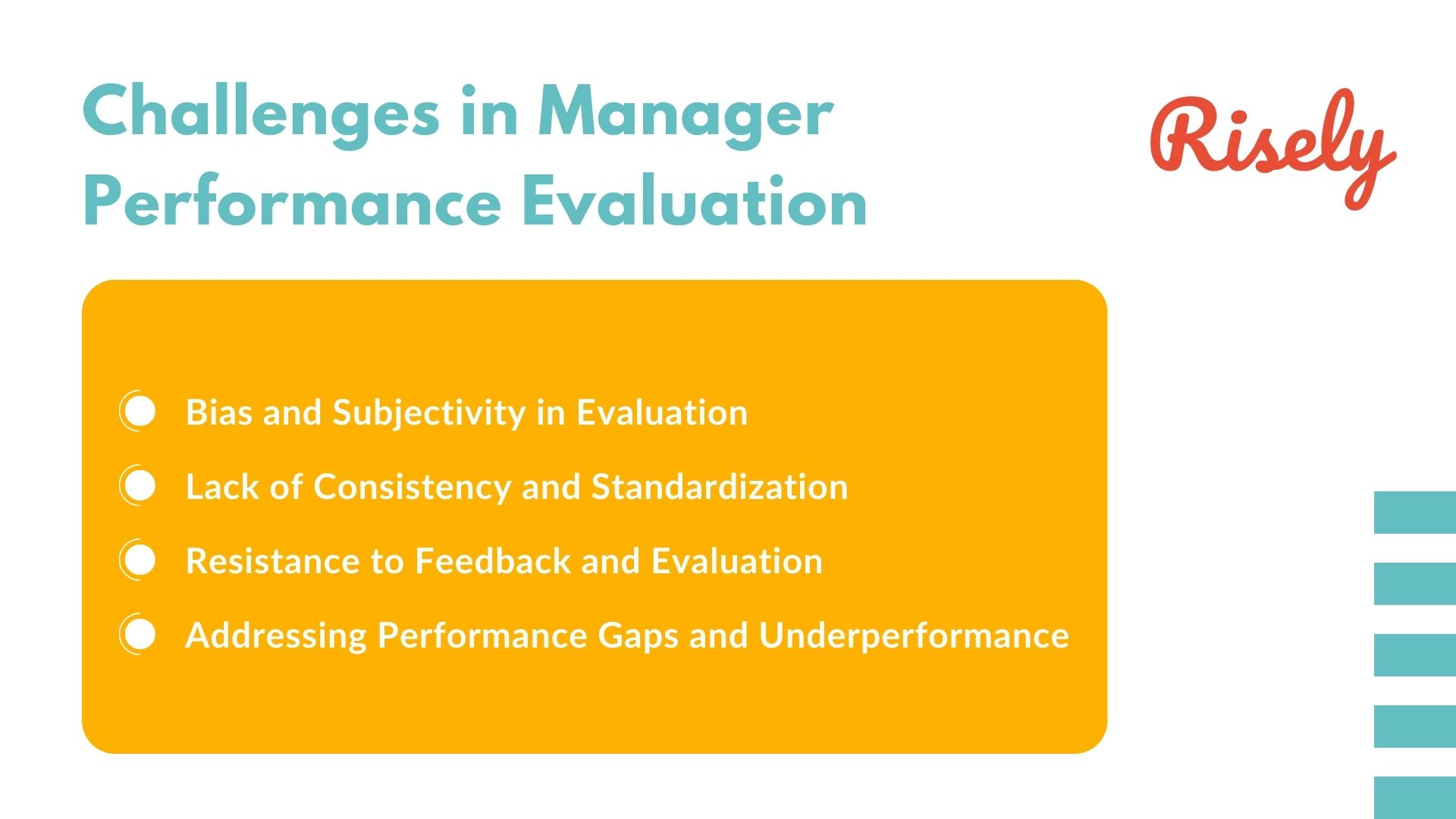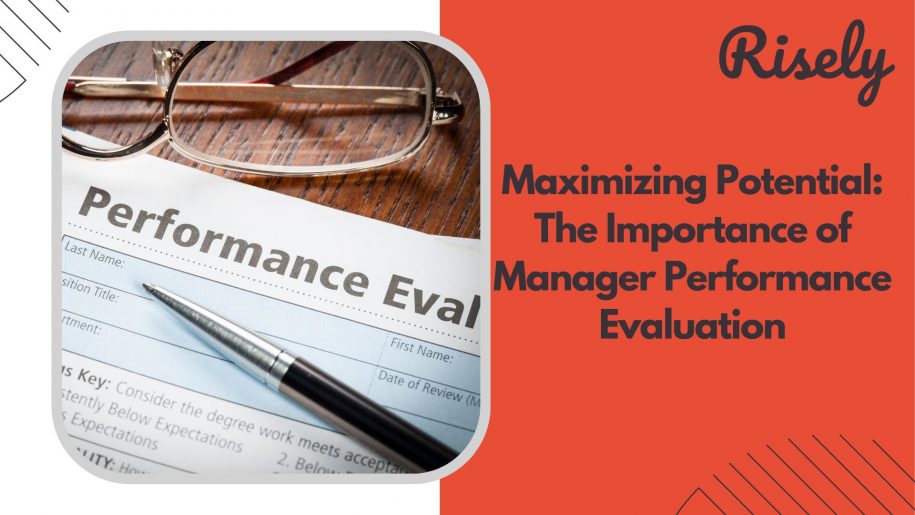Maximizing Potential: The Importance of Manager Performance Evaluation
Have you ever been part of a team where the manager seems to lead in circles, lacking direction or clarity? Or have you experienced the frustration of feeling undervalued and unheard, with no meaningful feedback or recognition for your hard work? If so, you’re not alone. The truth is that managing people is no easy feat, and evaluating managers’ performance can be equally challenging. But here’s the thing: it’s crucial. Think of it as the compass that guides an organization toward success. In this blog, we’ll dive into the importance of manager performance evaluation and explore how organizations can navigate these challenges effectively. So, let’s buckle up and embark on this journey together to maximize the potential of your team and organization!Table of Contents
- Maximizing Potential: The Importance of Manager Performance Evaluation
- What is Manager Performance Evaluation?
- Key Components of Manager Performance Evaluation
- Challenges in Manager Performance Evaluation
- Benefits of Manager Performance Evaluation
- Implementing Effective Manager Performance Evaluation Processes
- Maximizing the Impact of Manager Performance Evaluation
- Conclusion
What is Manager Performance Evaluation?
Alright, let’s break it down! Manager performance evaluation—it’s not just some corporate jargon thrown around in boardrooms. It’s pretty straightforward and super important. So, picture this: you’re part of a team, and your manager is like the ship’s captain, steering everyone toward success. Now, imagine if there was no way to check if the ship was heading in the right direction. That’s where manager performance evaluation comes into play. Here’s the deal: it’s all about assessing how well your manager is doing their job. From setting clear goals to providing feedback and driving team performance, a manager’s role is multi-faceted, right? And that’s precisely what we’re evaluating—how effectively they’re ticking off those boxes. It’s not just about pointing out flaws. It’s about recognizing strengths and areas for improvement, too. After all, we’re all on this journey of growth together.Key Components of Manager Performance Evaluation
Manager performance evaluation encompasses a variety of key components and metrics designed to assess the effectiveness of managers in their roles.- Communication Skills: Effective communication lies at the heart of successful management. Managers are evaluated based on their ability to convey information, listen actively to their team members, and foster open dialogue within the organization.
- Leadership Abilities: Leadership inspires and guides others toward shared goals and objectives. Managers are assessed on their capacity to lead by example, empower their team members, and cultivate a positive and inclusive work environment.
- Goal-Setting Process: Setting clear and achievable goals is essential for organizational success. Managers are evaluated on their capability to set SMART (Specific, Measurable, Achievable, Relevant, Time-bound) goals for their teams and align individual objectives with broader organizational strategies.
- Team Motivation: Motivated teams are more productive, engaged, and committed to achieving organizational objectives. Managers are scrutinized for their ability to inspire and motivate their team members, recognize and reward their contributions, and foster a culture of collaboration and innovation.

Challenges in Manager Performance Evaluation
Let’s delve into the challenges often encountered in manager performance evaluation and how to overcome them:- Bias and Subjectivity in Evaluation: One of the biggest hurdles in performance evaluation is the presence of bias and subjectivity. This occurs when personal opinions and preconceptions influence the evaluation process, leading to unfair assessments. Organizations can implement standardized evaluation criteria to mitigate bias, provide fair assessment practices training, and encourage evaluators to focus on objective metrics rather than personal biases.
- Lack of Consistency and Standardization: Inconsistent evaluation processes can undermine the credibility and fairness of performance assessments. Organizations should establish clear evaluation guidelines and standards that are uniformly applied across all managers to address this challenge. Standardization helps ensure that evaluations are conducted fairly and consistently, providing reliable insights into managerial performance.
- Resistance to Feedback and Evaluation: Some managers may resist receiving feedback or undergoing evaluation due to fear of criticism or negative consequences. Organizations should foster a culture of openness and transparency around feedback and evaluation to overcome resistance. Managers should be encouraged to view feedback as an opportunity for growth and development rather than a threat to their reputation.
- Addressing Performance Gaps and Underperformance: Identifying and addressing performance gaps and underperformance is essential for improving managerial effectiveness. Organizations can support managers in managing performance issues by providing targeted training and development opportunities, offering mentorship and coaching, and implementing performance improvement plans. By proactively addressing underperformance, organizations can help managers reach their full potential and contribute to organizational success.
Benefits of Manager Performance Evaluation
You know, when it comes to running a tight ship, manager performance evaluation is like the secret ingredient that takes things to the next level.- Enhancing Managerial Effectiveness and Efficiency: When managers know how they’re doing, they can adjust to be even better. It’s like fine-tuning a car to run smoother and faster. With performance evaluations, managers can pinpoint areas to improve and become more effective.
- Identifying Strengths and Areas for Improvement: Just like how you’d figure out your best subjects in school and where you could use some extra help, managers can learn about their strengths and weaknesses through evaluation. Knowing what they’re good at helps them leverage those skills while identifying areas for improvement allows them to focus on growing and developing.
- Aligning Individual Goals with Organizational Objectives: Imagine a team where everyone is rowing in different directions—it wouldn’t get very far, right? Manager performance evaluation helps align individual goals with the big-picture objectives of the organization. When managers understand how their work contributes to the overall goals, they can lead their teams more effectively toward success.
- Facilitating Professional Growth and Development: Just like learning and growing by receiving feedback on your schoolwork, managers grow professionally through performance evaluation. It’s an opportunity for them to learn from their experiences, seek training and development opportunities, and become even better leaders.
News Ticker
Implementing Effective Manager Performance Evaluation Processes
Alright, picture this: you’re gearing up for a road trip and want to ensure everything’s in place before you hit the road, right? Well, that’s kind of how it works with manager performance evaluation. You want to set your managers up for success from the get-go. Here’s how:- Establishing Clear Performance Criteria and Expectations: This step involves defining clear performance standards and expectations for managers. It’s like setting a destination for your journey. Managers need to know what is expected of them, what success looks like, and how their performance will be measured.
- Providing Timely and Constructive Feedback: Managers require timely and constructive feedback to understand their performance. Just like a GPS guides you along your journey, feedback keeps managers on track, highlighting areas of strength and areas needing improvement.
- Utilizing Multiple Evaluation Methods and Sources of Feedback: Effective evaluation involves gathering feedback from various sources, including self-assessment, peer reviews, and input from upper management. This approach provides a comprehensive view of a manager’s performance, much like having alternative routes on a road trip in case of unexpected detours.
- Incorporating Goal Setting and Development Planning: Managers benefit from setting clear goals and creating development plans to achieve them. This process is akin to creating a roadmap for the journey ahead. Goals guide managers toward their objectives and help them focus on professional development.
Maximizing the Impact of Manager Performance Evaluation
To maximize the impact of manager performance evaluation:- Integrating Evaluation into Talent Management and Succession Planning: This ensures organizations identify high-potential managers, develop future leaders, and ensure continuity in leadership roles, aligning evaluations with long-term strategic objectives.
- Creating a Continuous Feedback and Improvement Culture: Encouraging ongoing dialogue fosters transparency, accountability, and mutual learning. Regular feedback promotes a culture of improvement and development.
- Leveraging Technology for Streamlined Evaluation Processes: Technology automates workflows, collects and analyzes data efficiently, and provides actionable insights. Streamlining processes saves time, reduces administrative burden, and ensures consistency.
- Empowering Managers to Drive Their Development: Encouraging managers to set meaningful goals, seek feedback, and pursue learning opportunities enhances their professional growth. Providing access to tailored resources supports their development journey.
Conclusion
Manager performance evaluation is integral to identifying high-potential leaders, fostering a culture of continuous improvement, leveraging technology for streamlined processes, and empowering managers for their professional development. It’s time for organizations to prioritize and invest in effective evaluation processes. Organizations can drive excellence and success by integrating evaluation into talent management, fostering continuous feedback, and empowering managers. Embrace evaluation as a tool for growth and success. By actively participating in the process, setting meaningful goals, seeking feedback, and pursuing learning opportunities, managers can enhance their leadership capabilities and contribute to organizational excellence.Test your communication skills now to become an effective collaborator with teams
Get detailed insights delivered straight to your inbox in just a few minutes.

